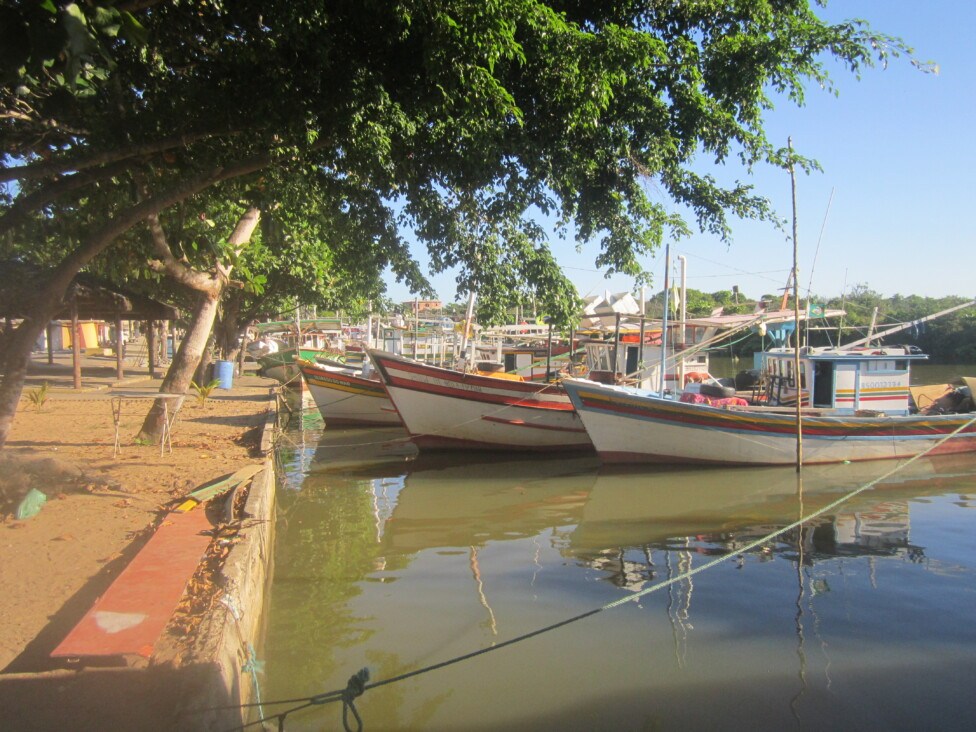
Sonia Ferreira watched as the sea toppled buildings all around her for years. Finally, the impact of the rise in sea levels wrecked her home in 2019. Fishermen find their access to a fishing port limited, affecting their livelihoods. The residents of the coastal town of Atafona in southeastern Brazil count their losses due to rising sea levels and climate change.
HAVANA TIMES – Coastal erosion has been aggravated by climate change and has already destroyed more than 500 houses in the town of Atafona in southeastern Brazil. Movements led largely by women are working to combat the advance of the sea and generate economic alternatives.
Atafona, one of the six districts of São João da Barra, a municipality of 37,000 inhabitants, is 310 kilometers by road northeast of Rio de Janeiro. It is a town with its own identity. Fishermen, who were joined by middle-class families from nearby large cities, built their vacation homes there.
Sonia Ferreira did so in 1980, when she lived in Rio de Janeiro. She moved permanently to Atafona in 1997, when she witnessed the disappearance of the three blocks that separated her house from the beach. In 2008, she saw the town’s tallest building—four stories—collapse across the street from her house.
She has photos recording the downfall of the building that housed a supermarket and a bakery on the first floor and a hotel upstairs. Her house would have been the next victim, but the sea granted her an 11-year grace period. “I will only leave when the wall around the house falls,” she would tell her family when they pressured her to move to a safer place.

But from 2019 to 2022, the sea level started to rise again. “In 2019, the first piece of the wall fell. I fixed up the little house at the back of the lot and moved in, but I kept the big house with the furniture until 2022, when the water reached the house and the floor gave way,” she told IPS at her current home, near her daughter’s house.
“The sea does not hit in overpowering waves, but erodes the sandy soil, infiltrates underneath the buildings, undermines their structures, and the house is basically left hanging in the air,” she described.
In late 2022, she decided to demolish the “big house” in a painful process after sadly seeing the wall fall down in pieces. But then she could not live in the small house in the backyard, which was invaded by a large amount of sand, so she was taken in by her daughter. Widowed, she has two other children who live abroad.
At the age of 79, Sonia Ferreira channels her love for the area as president of SOS Atafona, an association with about 200 active residents, mostly women, who debate and lobby the public authorities for solutions to stop the advance of the sea and other problems in the neighborhood.

Fishermen Suffer Climate Injustice
“Fishermen have been hit the hardest,” she said, as vacationers have resources such as other homes.
The original settlers are the main victims of climate injustice in Atafona. The rising sea level and the intensification of the northeast wind not only destroyed their houses but also exacerbated the siltation at the mouth of the Paraíba do Sul River, limiting the access of boats to the


